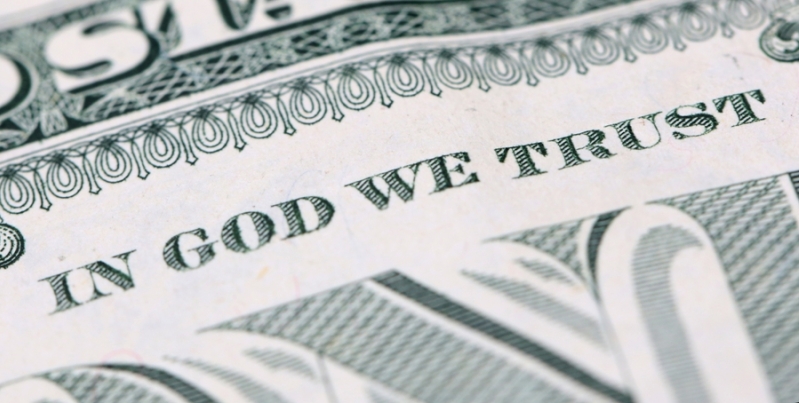
U.S. District Court officials for the Northern District of Ohio on Wednesday dismissed a lawsuit against the federal government that demanded the removal of the national motto, "In God We Trust," from U.S. currency. The plaintiffs, which are a "group of atheists, humanists, and religious persons who find the use of God's name on currency to be sinful," claim this national motto on currency breaches their rights to free exercise, free speech and equal protection. Attorneys from the largest U.S. legal organization dedicated to defending religious freedom for all Americans stepped into the case as well.
Plaintiffs specifically claimed this motto on U.S. currency violates the Religious Freedom Restoration Act of 1993, and the right to equal protection under the Fifth Amendment's Due Process Clause.
Similar lawsuit challenges about this motto on U.S. currency were filed previously, but failed. In fact, just in January, a Sacramento, Calif., attorney Michael Newdow filed a lawsuit in Akron, Ohio. He'd unsuccessfully sued the government at least twice, challenging the use of the phrase "under God" in the Pledge of Allegiance, according to Fox News. Throughout much of his lawsuit, the word appeared as "G-d." He claimed "In God We Trust" violates the separation of church and state.
Lawyer and atheist Newdow also represented a group in 2013, who argued they "are forced to proselytize - by an Act of Congress - for a deity they don't believe in whenever they handle money."
In 2011, a case also filed by Newdow made it to the Supreme Court, but was rejected.
After this most recent Ohio lawsuit was filed as the case of New Doe Child #1 v. The Congress of the United States, First Liberty Institute representatives filed a friend-of-the-court brief on behalf of The American Legion defending the national motto. The American Legion is the largest U.S. veterans' service organization with more than 2 million members.
In the brief, First Liberty Institute attorneys stated: "The American Legion believes that our National Motto, 'In God We Trust,' itself originating in Francis Scott Key's poem that would become 'The Star-Spangled Banner' and honoring the courage and valor of our service members who defended Fort McHenry during the War of 1812, is a fitting and solemnizing motto for this nation. The American Legion has, therefore - as recognized even in Plaintiffs' First Amended Complaint - regularly advocated for the recognition and honor of our National Motto as well as its history and heritage."
"We're grateful that the court upheld the federal government's ability to display our national motto on our currency," said First Liberty Institute President and CEO Kelly Shackelford.
"Federal courts have repeatedly upheld the national motto as constitutional. 'In God We Trust' is deeply embedded in our nation's history and is a symbol of patriotism."
Congress first approved the inclusion of "In God We Trust" on U.S. coins during Civil War in 1864. In 1956, Congress passed a resolution to recognize the words officially as the national motto, replacing the de facto phrase, "E Pluribus Unum." A year later, the motto began being printed on paper money.
One of the plaintiffs in the recent Ohio case indicated "participation in any activity that ultimately leads to the superfluous printing of G-d's name on secular documents or to the destruction of G-d's printed name is sinful," said Justin Butterfield, First Liberty Institute senior counselor.
"G-d's printed name on the nation's money will ultimately be destroyed," cited the plaintiff, who said he had to choose between engaging in sin, or not using the nation's coins and currency bills. He then stated this choice "substantially burdens him in the exercise of his religion."
In the case just dismissed, Judge Benita Pearson ruled that the plaintiffs could not demonstrate the use of the motto on currency substantially burdens their religious exercise, because credit cards and checks allowed them to conduct the bulk of their purchases with currency not inscribed with the motto.
"'In God We Trust' motto appears on government buildings across the country, including the House and Senate Chambers. Banning the national motto from our currency would have been egregious, and the court ruled correctly in dismissing the lawsuit," said Butterfield.






